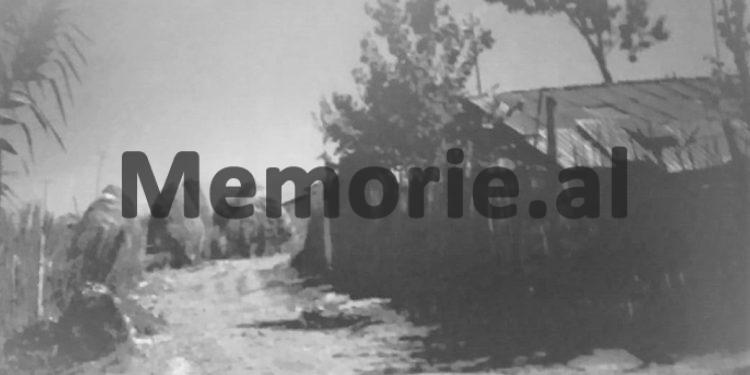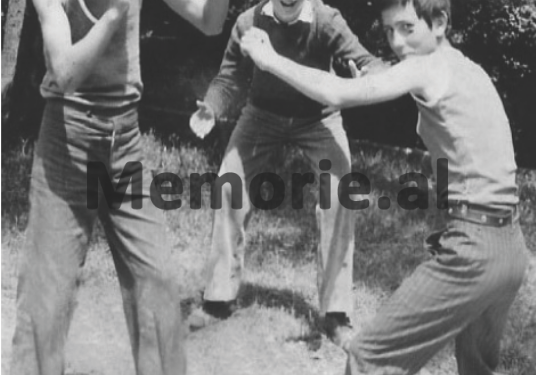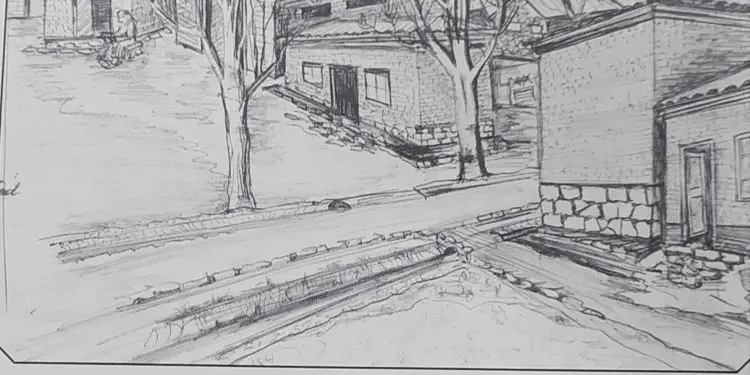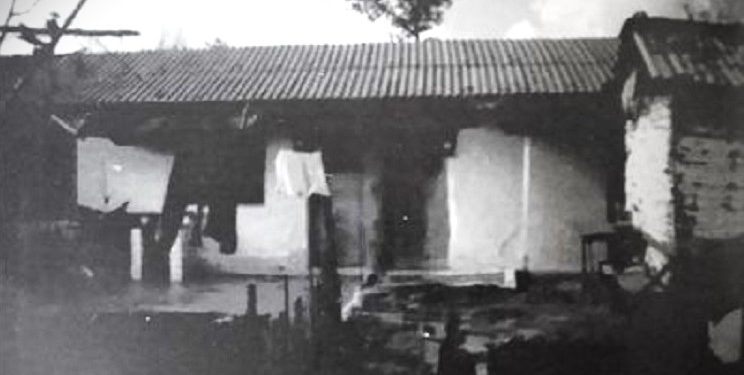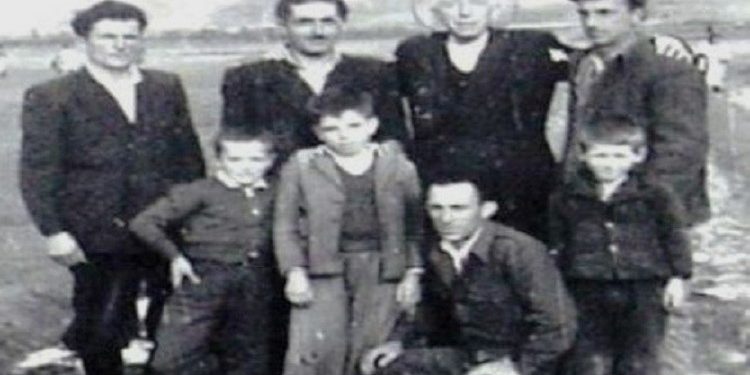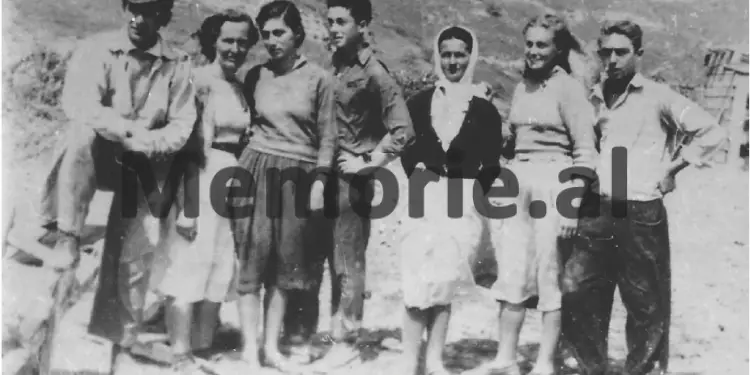By Beqir SINA
Memorie.al / The escape at a young age of some of our fellow sufferers, those who were born and raised in the internment camps, to the world in the last two decades, everywhere has been more than a mixed pain. Not only did they run away at a young age, but also without enjoying this blessed day, which God himself gave us as fish, so that we too could live one day in freedom and democracy. But, again, we thank God for this gift, that at least our children did not have our fate, because they grew up like the children of the whole world today.
However, their departure, and that of our parents forever, has been great and very shocking, not only for the families, but for all of us, who were lucky enough to live together and grew up as brothers and sisters. But even those who remain for us as our parents, scolded us, taught us and educated us. We peers, like our parents, shared together at that time also those days of youth in the internment camps, where they were “hidden” between youthful dreams and fear and deprivation of all rights of that time.
Like every fellow sufferer in the internment camp, including our parents who paid more than us, with a whole life in Enver Hoxha’s infamous prisons, becoming a shield for us, their children, because we were children, and it was not our turn, until those parents also died, without seeing a ray of “Sun”, if you asked them today, they would answer that: “Anything, we would probably forgive them, even if they were alive, to that regime, but one cure at a time, we would not forgive the youth, which they denied and took from us”.
In the last two decades Perendia, it is said that; “just as you love them and take them”, this is what happened to some of them, one escaped from this life due to an accident, someone from a serious and incurable disease, but they all have one thing in common: “They left like angels to Heaven, or Hell”.
This is how Gjovalin (Lin) Konti, together with his father Rrok Konti and mother Lule, died of a serious illness, Ndoc Vokrri, Bardhok Zefi’s son, died in a traffic accident in the prime of his youth. , Kujtim Nela, the son of Sherif Nela, died, and finally, a few years ago, Gani Hoxha, the son of Bajram Hoxha and Zyle Metalija – Hoxha, also passed away.
But, unforgettable in our memory, will remain some of our friends, our peers, who did not live in our political circumstances in the Savra Internment Camp, but who were and will remain alive in our minds and hearts as comrades and good friends, and indeed those who attached themselves in those difficult times, to our youth.
However, the life of these people who spent their whole lives in terrible prisons and internment camps, which lost the most beautiful thing in this world, i.e. their youth, naturally left a mark everywhere! In almost 50 years of dictatorship, years that are carved like a chisel, in their hearts, are like a story, not just a few years, but like those stories that, although centuries pass, cannot be easily forgotten.
For each one of us today, when we start with the memories, I can write very easily, and so I ask each one of us, not to “tremble” and not to “fear”, but to write something, because they have their lives between to these people with lots of memories, with the good but also the bitter ones of life. Which are eternal signs and indicators, even in our eyes and faces, that we remained living witnesses of that calvary.
They are the evidence of a life that was raised as a monster and unfairly, by some people, on the fate of some other people. People who, the only fault they had committed, was that they had been the pariah of that country, ardent patriots and patriots, noble and intellectual of the time, enriched by sweat, even fighters and signatories of the Independence of Albania. Even family members, from those who participated in the flag rising in Decic in 1911 and up to Vlora in 1912.
So, there were (as my aunt told me) even like the Venerable Dom Pjeter Mëshkalla, who only had in their hearts – Religion and Fatherland! “One day – said my late uncle, Musa Sina – when a guard, a red executioner with a star on his forehead, ignorant and cruel, fell on the palm of his hand among the prisoners, Dom Pjetër Mashkalla, because he was reading a foreign novel, the priest, addressed the guard with two drops of tears, which slipped unintentionally, saying that: ‘There is no greater pain and horror in this world, than when the power of ignorance and ignorance, that is, the power of force , comes out and shoots at the other force; that of knowledge, honesty, patriotism and religious belief – I also put my hands on the man of God”.
So, this was more or less a part of the life of these people, who were born and raised from these “houses” of indescribable pain and suffering, raised everywhere like mushrooms, starting from Kruja, Berat, Porto Palermo, Tepelena, Delvina, Vlora, Fieri, Lushnja, Durrësi, Korça, etc.
It was their exile and prison, it was that “home” that gave birth and raised them, or kept within its walls the soul and heart of these people, which nourished at that time not only them, but also their children with feelings flames of family, of patriotism, of love for their country, for their religion, freedom and democracy.
“This mort fell and we saw” – our great writer, Ismail Kadare, would title his novel. And it really happens like that and it happened a few years ago in Bronx New York. They gathered there in the presence of Gani Bajram Hoxha (February 12, 1955-December 19, 2012). Born in Savër (Lushnja, in the Internment Camp) all his family members, relatives, former political prisoners and ex-internees, but also those who knew him from Lushnja and from Savra.
They gathered to pay their respects – to the deceased brother, Bislim Bajram Hoxha and his family, with the priest Avdullah Tahir Hoxha, sisters Servete Mulosmanaj, Myrvete Kotaj, with the Hoxha brothers, nephews and nieces, who according to custom opened the door for men and women, (on January 6, 2013, Sunday) at the “ROZAFA” restaurant, Bronx New York. The deceased was buried with honors in Tirana, on December 22, 2012, leaving behind his wife and three children.
His life in the internment camp in Savër t Lushnje, resembles that of famous music, fashion and film artists, today. Born in an internment camp in Savër, a village or village, about three kilometers from the city of Lushnje, next to the national road; Lushnje – Fier (those who visited Savra at that time, in terms of the people who populated it, of knowledge, culture and intellectualism, considered it: “a small Paris”. Gani Hoxha, was among the first to dress in fashion, since at that time, together with his wife, Bajame Çeliku, who came from a well-known noble family in the territory of Kukës.
Gani’s wife, together with her family – were also interned in the camp in Savër of Lushnja. Bajame Hoxha, became known only with the advent of democracy, after several years she wrote poetry, but with an anonymous name; “Ama Steel”. But today in the free world, she has published a total of 16 books and her books have been appreciated, even by well-known Albanian writers and poets.
The poet Përparim Hysi says in one of his essays that: “While the communists threw stones at Almond, she returned them with verses. He returned them with verses filled with love; with life purchase. That’s how she was, generation after generation, as a family, and there was no way to make this strong character ugly. So those with stones and Almond with wheat. Poetic wheat. To envy him”.
Further, in the essay: “Gjysma ime”, by Bajame Hoxha (Celiku), the poet Përparim Hysi says: “No school makes you a poet – just like no school makes you a person. Both humanity and poetry have deep roots: in the heart. And Almond’s heart, which is soft, likes milk. When he was suffering, instead of moaning, he sang. That, by it, his soul sang.
Almond’s poetry is so beautiful and so sweet, that when you read it, you, as a reader, sing it, that it enters, as if without understanding, straight into your soul and you are the way you are, yes, and you gain a feeling other: you relax and feel a pleasure and chastity, almost magical. Am I talking with superlatives? No. Not at all!
Ganiu lived most of his life in Savër, which was one of those 20 internment camps, where at that time the paria of the country, the most educated people of the country, (and all of them abroad, with one language) were gathered foreigners, two three or four or more any).
Savra was due to its geographical position, also the place where for the first time after Tirana, Shkodra, Durrës and Elbasan, the first book, the film of that time, the place where the world was known, because only the Italian channels were secretly heard there, Savra it was the place where fashion and music spread immediately after Tirana, Shkodra, Durres and Elbasan. Fashion for the girls and boys of the Savra camp were the first, because there were about ten sewing machines that sewed around the house, from which the “cowboy” pants, the tight shirts, or the girls, the fashionable dresses, there the boys and girls, they hung out with their friends, according to the fashion of the time.
Savra was the place where the books of the most famous authors in the world were like in the state libraries of different cities, where book lovers kept them in their homes, on wooden shelves. An exile, he had more than a thousand books, by the most famous authors in the world, whose name was Spiro Anastasi. Meanwhile, with 500 books and below, the room of every house, of the intellectual families of the camp, was almost full.
But when we remember Gani Hoxha, those memories come to mind, when: “On the bulletin board not only in Savër, but also in the center of the city of Lushnja, there was not a day that did not appear in the Bulletin – Rufe, of any of Savra and especially Gani Hoxha and Flamur Spahi, Ahmet Laholli, and others, but also their other friends, who also lived only with hope and dreams of that age. Many of which were realized only by the fall of communism, the emergence into the free world, in the first years of the transition.
Even though Gani Hoxha’s name was targeted by the spies of the Internal Affairs Branch, he had a lot of courage and many friends, peers, not only from the internees, but also from those who lived on the other side of the ghettos, “to the free”, as we called them at that time, who were; Progress Jahobashi, Namik Toska, Xhoxhi Çerepi and many others……!
And this is how Ganiu is remembered today, with much sympathy and respect, by all his peers in the village, as a tall boy with a beautiful body, like most boys from Tropoja, as a boy who, if he was in his youth, like today’s young people with his physique, of course he would be some “Top Model”. He had the typical physique and parameters of a model and the characteristics of those boys, who were born and raised like “mountain tops”, tall and beautiful, healthy and wise boys and girls. Such was Gani Hoxha, the boy who came from the Alps of Albania, from Tropoja.
“Tropoja, which is a name of glory and pride, for centuries and generations, honored the nation and the homeland. The trope of faith, manhood, tradition, bravery, song and generosity. It is part of the Highlands of Gjakova, or as it is called otherwise, e; “The Good Highlands” and presents a special miracle, in the entire Albanian space. In Tropoja lives a people with a pure heart, a clear mind, healthy, beautiful, smiling, smart”, – states the researcher of these three, Ibrahim Kadri Malaj, in his book “Tropoja in generations” (Tirana, 2003).
And finally, Gani Hoxha is the son of Bajram and Zylë Metalija – Hoxha, or the grandson of the well-known Tropojan nationalist, Tahir Hoxha, and the friend of the Great Door of Binak Alia (Mulosmanaj). The well-known Tropojan writer, Ramiz Lushaj – has written about these two families, that: “In the entire Dardan area, the tower of Binak Ali (Rama), has historically remained a good door, for all its generations, scattered in branches , from Tropoja and Ethnic Albania, to America.
This tower (together with that of Hoxhaje, in Gash i Tropoja), was hit on April 8, 1941, by a squadron of three military planes, by direct order from Rome and Benito Mussolini, for their loyalty to King Zog, and resistance to the Italian fascist invaders”, writes, among others, the tropojan writer, Ramiz Lushaj. Memorie.al




